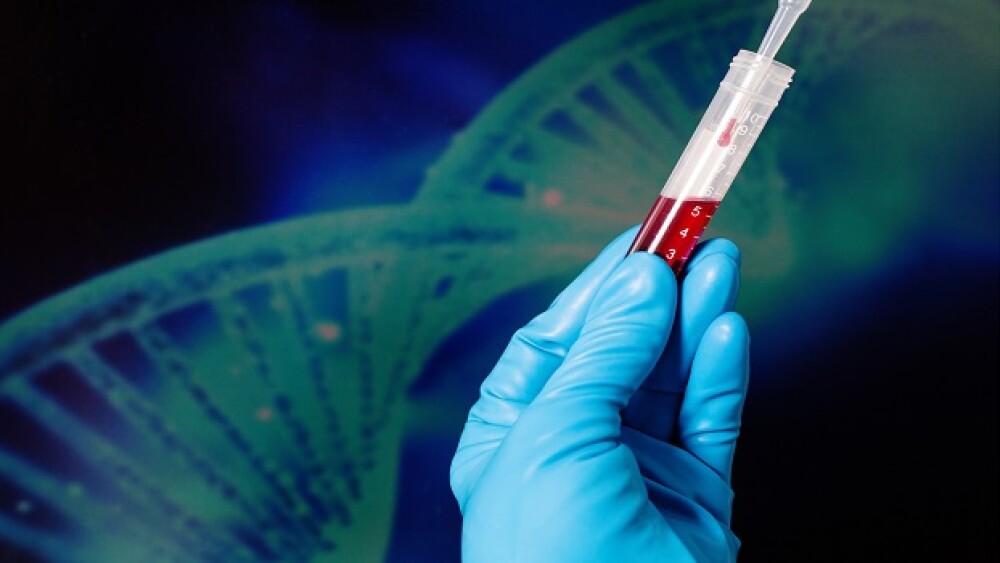The California-based company also shared positive early data from a beta thalassemia study and announced plans to increase AAV manufacturing.
Shares of Sangamo Therapeutics soared more than 28 percent Tuesday to close at $12.29 per share after the company announced positive interim data from a Phase I/II hemophilia study conducted with Pfizer, as well as early data from a beta thalassemia cell therapy treatment developed with Sanofi.
In the hemophilia A trial dubbed Alta, Brisbane, Calif.-based Sangamo said the interim data from the trial indicated that its investigational gene therapy treatment for a severe form of the disease, SB-525, “was generally well-tolerated and demonstrated a dose-dependent increase in Factor VIII (FVIII) levels across the four dosage cohorts.” There are a total of eight cohorts dosed, Sangamo said. Based on the interim results, the Safety Monitoring Committee recommended a cohort expansion at the 3e13 vg/kg dose.
Sangamo Chief Medical Officer Edward Conner called the interim data from the Phase I/II trial “encouraging.” He said the data demonstrate a dose-dependent relationship, as well as evidence of sustained factor levels and low variability. These results are seen within each patient and within each cohort, Conner said.
“These interim results suggest that SB-525 may be well-tolerated and may prove to have the predictability and sustained treatment effect that can bring clinical benefit in patients with hemophilia A. We need to continue observing how the data mature and how additional patients in the expansion cohort respond to SB-525. We look forward to working with Pfizer to potentially advance SB-525 into a registrational study,” Conner said in a statement.
SB-525 is a recombinant adeno-associated virus serotype 6 vector (AAV6) that encodes the complementary deoxyribonucleic acid for B domain deleted human FVIII, Sangamo said. SB-525 was designed to optimize both the vector manufacturing yield and liver-specific FVIII protein expression.
In addition to the hemophilia A trial, Sangamo announced progress in its ex vivo gene-edited beta thalassemia cell therapy treatment being developed with Sanofi. The treatment asset, ST-400, is an autologous cell therapy that involves gene editing of a patient’s own hematopoietic stem cells (HSCs) using non-viral delivery of zinc finger nuclease (ZFN) technology. Sangamo said the first patient treated with ST-400 in the Phase I/II THALES trial has the most severe form of transfusion-dependent beta-thalassemia and required packed red blood cell (PRBC) transfusions every other week.
Despite an early adverse allergic reaction related to the cryoprotectant present in the product, the patient has shown significant progress following treatment with the gene therapy. Sangamo said the patient demonstrated neutrophil and platelet recovery within two and four weeks of infusion, respectively. This indicates that ST-400 successfully reconstituted hematopoiesis following conditioning, Sangamo said. Additionally, small insertions generated at the targeted DNA sequence called indels, have been detected in white blood cells. This indicates successful editing of the BCL11A gene, the company added.
“While these data are very early and will require confirmation in additional patients as well as longer follow-up to draw any clinical conclusion, they are promising. The detection of indels in peripheral blood with increasing fetal hemoglobin at seven weeks is suggestive of successful gene editing in this transfusion-dependent beta thalassemia patient,” Angela Smith, an associate professor in the Division of Pediatric Blood and Marrow Transplantation at the University of Minnesota.
Sangamo said it will continue to enroll patients in the THALES study and anticipates presenting longer-term data in the fourth quarter of this year, including results from additional patients.
The encouraging early data from these two separate trials was a needed boost for Sangamo, which earlier this year presented early data from a study of genome editing product, SB-913, for treatment of patients with Mucopolysaccharidosis Type II (MPS II), also known as Hunter syndrome, which was less than stellar. That news was not pleasing to investors at the time and shares fell about 30 percent.
Along with the gene therapy data, Sangamo also announced Tuesday that it signed an option agreement with Brammer Bio for access to large-scale AAV manufacturing. Additionally, at Sangamo’s new facilities in Brisbane, California, construction is underway of a Phase I/II cGMP manufacturing facility, which is expected to be operational in 2020.
Shares of Sangamo have continued to climb in premarket trading this morning to $12.45.





